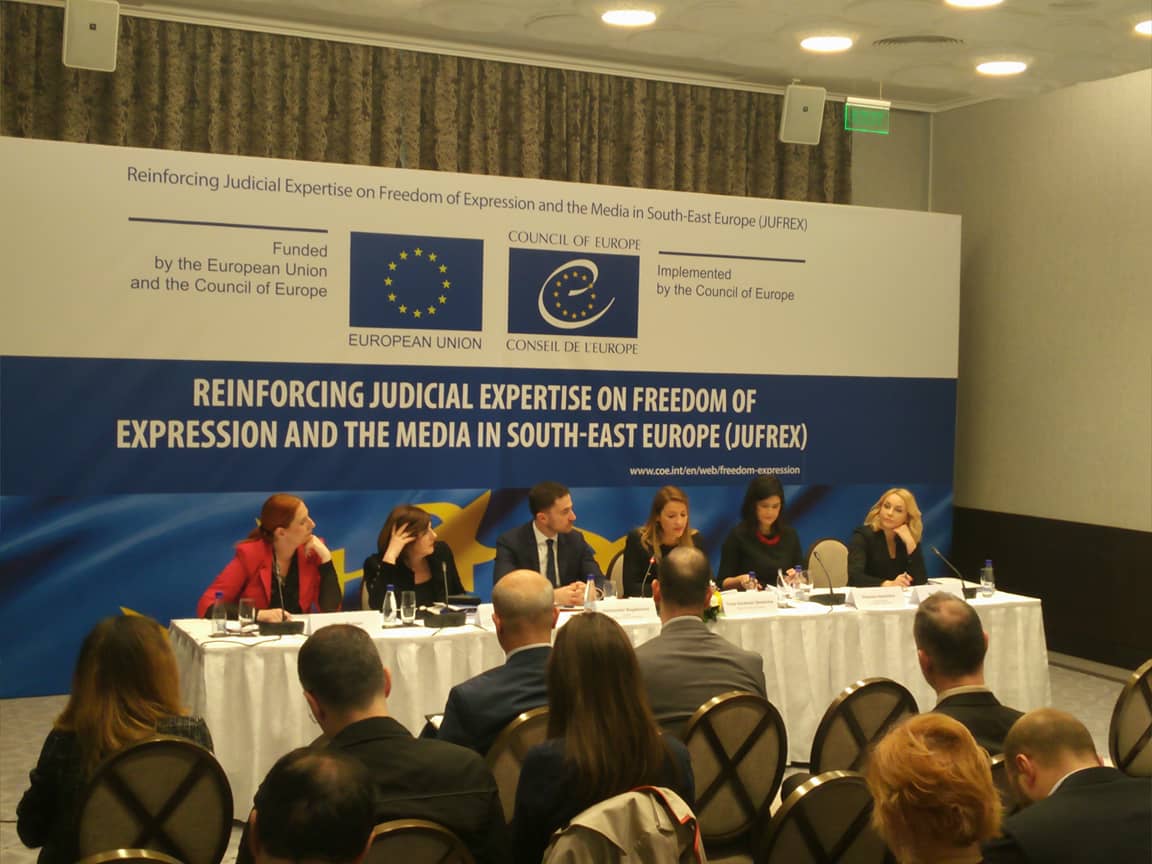PODGORICA, 05.04.2018. – Representatives of the Council of Europe (CoE) presented today the results of Montenegro Media Sector Inquiry, conducted from August last year until January this year, within JUFREX, a joint program of CoE and the European Union (EU).
During the development of the Inquiry, which was conducted by a team of international experts, representatives of the Trade Union of Media of Montenegro (SMCG) were also consulted.
The document states that legislative mechanisms should be adopted to ensure the editorial independence and the legal protection of journalists in cases of ownership change and / or editorial policy. This was also one of the recommendations presented by SMCG in December 2017, after its analysis of the Law on Electronic Media and the Media Law.
“The journalists’ labor and employment rights should be respected and properly implemented by the industry”, recommended CoE.
Also, experts stressed that private media should be strongly encouraged to engage in dialogue with the national trade union – Trade Union of Media of Montenegro, which, as they pointed out, has been working for a long time on a branch collective agreement.
“Draft has been ready for a year now and the employers have not taken any further action or reaction”, states the document.
The Inquiry also showed that media market is small and economically underdeveloped with a large state intervention, and that the legal framework is incoherent. Also, one of the conclusions is that the independence of public broadcasters must be ensured at national and local level.
According to CoE expert and editor of the report, Tanja Kerševan Smokvina, it is necessary to revise existing regulations and avoid ad hoc and fragmented solutions, but also to increase the transparency and objectivity of media financing.
“It is necessary to strengthen the independence and efficiency of regulation, strengthen self-regulation and the application of professional standards and provide a safe environment for journalists in order to be able to do their job,” said Kerševan Smokvina.
According to Minister Aleksandar Bogdanović, in Montenegro is systematically working to improve freedom of expression through a legislative framework based on media freedom principles, media pluralism, independent regulation, and self-regulation.
Plamena Halacheva, Chargée d’affaires and Head of Political Section at the EU Delegation to Montenegro highlighted that freedom of the media was a non-negotiable condition for any candidate country on its way towards EU membership, and an important indicator of the functioning of rule of law.








